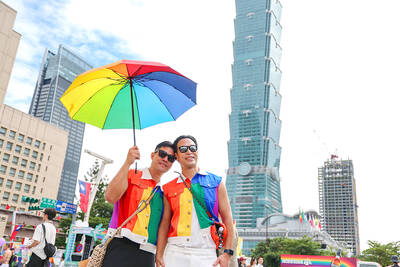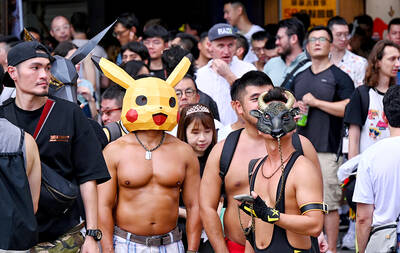Welcome to Sunday Science! Every Sunday during the summer, we’re going to guide you through some cool experiments that you can do at home. It’s a good idea for you to keep a record of what you do in a Science Journal. That way you can record what you learn, compare results and maybe use them to design new experiments! Have a look at the Science Journal box for some ideas to get you started. Remember to always ask a grown-up’s permission before trying out an experiment.
歡迎閱讀《週日科學版》!在暑假期間,我們每週日都要為你介紹可以在家中進行的有趣科學實驗。你可以在《科學日誌》中記錄自己做了哪些活動,這樣就可以將所學的紀錄下來,比較這些結果,也許還可以利用它們來設計新的實驗!先看一下《科學日誌》的點子再開始吧。展開實驗之前,記得要獲得大人許可喔!
Making a volcano 動手作火山
What you will need:
An empty water bottle
Bicarbonate of soda (baking soda)
Vinegar
Dish soap
Food coloring (red)
A tray (to put everything on)
A cup or pouring jug
A spoon
A funnel (if you don’t have one at home, you can make one from cardboard covered with tinfoil or use a pouring jug to add the ingredients)
Some sand or modeling clay (optional)
Glitter (optional)
Old Newspaper
* Place the newspaper over your working surface.
* Put the tray on the newspaper. Put your empty bottle in the middle of the tray and put the funnel in the neck of the bottle.
* Use the spoon to put baking soda in the bottle. Put in enough to cover the bottom of the bottle well. If you are using glitter add this too.
* If you are using sand or modeling clay, shape it around the bottle (to about 3/4 of the way up) to make it look like a volcano or mountain.
* In the cup or jug combine 1/4 cup of vinegar, two big drops of dish soap and a couple of drops of food coloring (be careful food coloring can stain clothes).
* Pour the mixture into the bottle and watch what happens!
Don’t forget to record what happens in your Science Journal.
所需材料︰
一只空水瓶
小蘇打粉
醋
洗碗精
紅色食用色素
一只托盤(大小需足以放置所有東西)
一只杯子(或是有傾倒口的量杯)
一個湯匙
一只漏斗(假如家裡沒有漏斗,你可以用鋁箔包住厚紙板來自己做一個,或是用量杯來添加材料)
沙子或塑形用黏土(非必要)
亮片(非必要)
舊報紙
* 在工作檯面鋪一張舊報紙。
* 把托盤放在報紙上。將一只空瓶子放在托盤中央,並把漏斗架在瓶子上。
* 用湯匙將小蘇打粉加入瓶內,數量要足以覆蓋整個瓶底。假如你有亮片,也可以在這時加進來。
* 假如你有沙子或黏土,將它們包住瓶子四周(約瓶高的四分之三),讓瓶子看起來宛如火山或高山。
* 在杯子或量杯中放入四分之一杯的醋、兩大滴洗碗精,與幾滴紅色色素(小心別讓色素弄髒衣服)。
* 把這些東西倒入瓶內,看看會發生什麼事!
別忘了將實驗結果紀錄在《科學日誌》喔。
(翻譯︰賴美君)

A: The 23rd Taiwan Pride parade will be marching again on Saturday, Oct. 25. B: Will the parade kick off from Taipei City Hall Plaza as usual? A: Yup, and there will be over 110 LGBT-themed booths at the Rainbow Festival in the plaza. B: The organizer is reportedly teaming up with Japanese, South Korean and other international groups. A: So we are likely to see more foreign visitors from across the world. Hopefully, this year’s parade can smash the record of 200,000 marchers set in 2019. A: 第 23 屆台灣同志遊行本週六即將登場。 B: 遊行還是從台北市政府前廣場出發嗎? A: 對,廣場「彩虹市集」還有超過

A: As the Taiwan Pride parade enters its 23rd year, the nation also celebrates the sixth anniversary of the legalization of same-sex marriage. B: However, a poll showed that support for same-sex marriage slightly dropped to 54.3 percent from last year’s 56.5 percent. A: The government is wavering on whether to extend the Assisted Reproduction Act to same-sex couples, leading to public doubts. B: Since US President Donald Trump took office in January, his oppression of Diversity, Equity and Inclusion (DEI) programs has also frustrated the global LGBT community. A: Let’s join the parade in Taipei tomorrow to

California will phase out certain ultra-processed foods from school meals over the next decade under a first-in-the-nation law signed on Oct. 8 by Gov. Gavin Newsom. The law seeks to define ultra-processed foods, the often super-tasty products typically full of sugar, salt and unhealthy fats. The legislation requires the state’s Department of Public Health to adopt rules by mid-2028 defining “ultra-processed foods of concern” and “restricted school foods.” Schools have to start phasing out those foods by July 2029, and districts will be barred from selling them for breakfast or lunch by July 2035. Vendors will be banned from providing the “foods

Have you ever bought a new smartphone and suddenly found yourself dissatisfied with your perfectly fine headphones? Before long, you’ve purchased premium wireless earbuds, a protective case and a fast-charging station. What begins as a single acquisition snowballs into a shopping spree—this is the Diderot effect in action. Named after the 18th-century French philosopher Denis Diderot, the Diderot effect originates from an essay he wrote. In it, he recounted receiving a luxurious robe as a gift. As lovely as it was, the robe clashed with the rest of his humble belongings. One by one, he replaced his possessions to match the